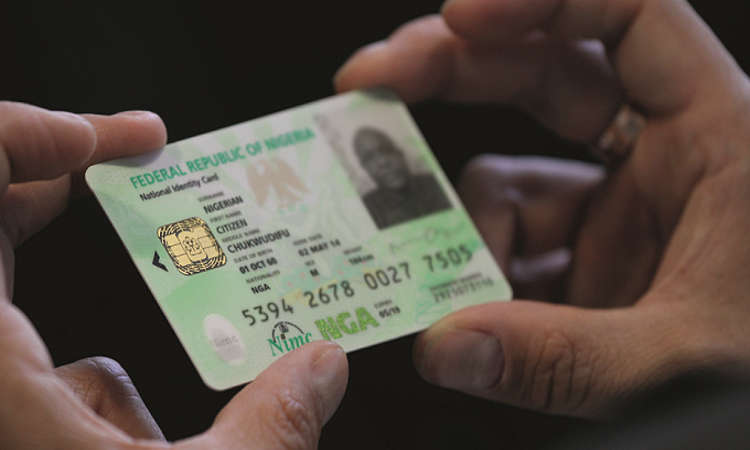
The use of National Identification card in Nigeria is suddenly becoming a National issue. On Monday August 5, the Director of the National Identity Management Commission (NIMC), in Ekiti state, Mr. Gbenga Ifayefunmi revealed that it has become compulsory for Nigerians who wish to obtain international passport and driver’s license to have National Identity card.
This new development is as a result of new executive order signed by president Muhammed Buhari, compelling the use of National IDs for government related businesses. Every Nigerian has thus, been urged to enroll through NIMC centers and enjoy the unique advantage that its social security number offers – it ranges from education to healthcare to every government related engagement. The new change in policy means that individual data can be updated and changes can be made on issued cards.
The Director General of NIMC, Mr. Aliyu Aziz, explained that the National Identity card can only be issued to Nigerians registered into the national identity system and legal residents who have attained the age of 16 years and above, but the National Identification Number (NIN) is assignable to Nigerians alone. This move by the FG is in a bid to enroll Nigerians into the National Identity Database (NIDB), which is recently established to register the legitimacy and authenticity of the citizenry. So far, it has been a welcome development though it’s coming later than it should and there are challenges.
Register for Tekedia Mini-MBA edition 19 (Feb 9 – May 2, 2026): big discounts for early bird.
Tekedia AI in Business Masterclass opens registrations.
Join Tekedia Capital Syndicate and co-invest in great global startups.
Register for Tekedia AI Lab: From Technical Design to Deployment (next edition begins Jan 24 2026).
According to the International Committee of the Red Cross (ICRC), an estimated 2 million people have been forced by armed conflicts to flee their homes. Many of them are internally displaced while others sought refuge in neighboring countries. This figure is a destabilizing factor in FG’s bid to develop a national identity database owing to the fact that some regions in Nigeria, mainly in the North don’t have the stability for such data collection.
The majority of this Internally Displaced Persons (IDPs) are scattered across neighboring countries like Chad and Niger Republic who have common culture with Northern Nigeria -Talk of names and language and style of grooming. This means, the people in this geo-zone can move freely and integrate without hindrances, and that’s a challenge.
In April 2018, president Muhammed Buhari stated that the insecurity in the Northeast is worsening because of the Libyan impact. He claimed that following the uprising that usurped the former military dictator, Muammar Gadhafi, his armed militia scattered across Africa, and thus have infiltrated the Northeast region and it has resulted in the escalation of criminal activities. Buhari’s statement only confirmed the challenge: if people from Libya, bright in color and easily distinguished among other Africans, could easily infiltrate Nigeria, owing to our porous borders, what about those whose have dark skin? And the Fulanis that spread across the West African region?
It would only take a Hausa or Fulani name and a Local Government Area (LGA) to justify it. And that will be all, you are a Nigerian whose record could be found in the National Identification Database. Although Aziz said that identification and data collection will be done through the help of traditional rulers and village chiefs, the loopholes are so wide to be covered.
Free movement and integration can justify any story of origin that natives cannot relate with. For instance, if someone who came from Niger republic claim to be an indigene of a village in Sokoto state, and he lives in Kano, it will be difficult to refute such a claim. The number of Nigeriens who live in Lagos is high, and you could hardly see anyone of them admitting that he is not a Nigerian. There is always a Northern state to lay claim on, and excusably so because they know the nooks and crannies.
Nevertheless, the recent change in the policy of NIMC that includes the registration of infants and those below the age of 16, will yield productive and protective result in the future –developing the ever needed national identity database. However, the exercise is likely going to gift undue citizenship to many foreigners as a result of integration loopholes.



